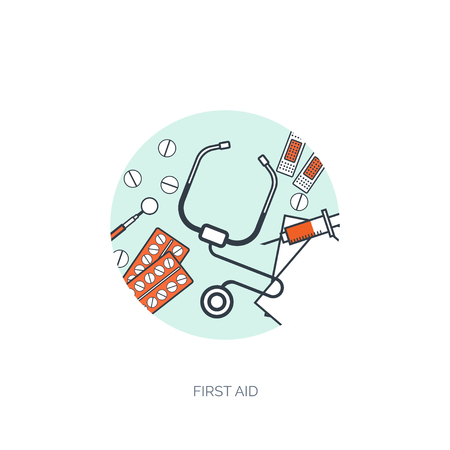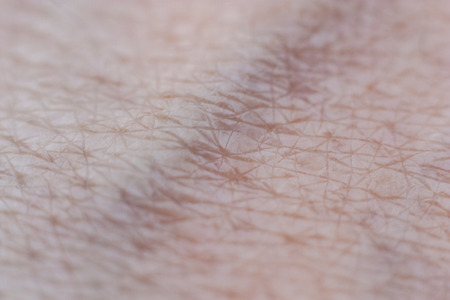Understanding the Regulatory Landscape
When considering opening or operating a laser hair removal clinic in the UK, it is essential to have a firm grasp of the legal and regulatory framework that governs this dynamic sector. The landscape has evolved significantly in recent years, with increased attention on client safety, practitioner competence, and standardised practice. In the UK, key oversight is provided by several governing bodies, most notably the Care Quality Commission (CQC) in England, which regulates clinics offering certain medical treatments involving lasers. However, not all laser hair removal procedures fall under CQC regulation, especially when they are performed for purely cosmetic purposes rather than medical reasons.
Local authorities play a critical role as well, particularly through licensing requirements that vary across different regions. Many councils require clinics to obtain special treatment licences before performing any laser-based services. Additionally, practitioners must adhere to health and safety laws overseen by the Health and Safety Executive (HSE), ensuring equipment is maintained and staff are properly trained.
Recent legislative changes have tightened these requirements further. Amendments to the Cosmetic Products Enforcement Regulations and updates to guidance from bodies like the General Medical Council (GMC) reflect a growing emphasis on consumer protection and professional accountability. As a result, anyone entering this industry must stay abreast of both national legislation and local council policies to operate confidently and responsibly within the law.
2. Licensing and Registration Requirements
Understanding the licensing and registration landscape is fundamental for anyone looking to open or operate a laser hair removal clinic in the UK. The requirements vary significantly across different regions, so it is essential to stay informed and compliant at all times.
England
In England, the landscape shifted following the deregulation in 2010, which removed mandatory Care Quality Commission (CQC) registration for certain cosmetic laser treatments. However, clinics must still comply with health and safety regulations, including the Health and Safety at Work Act 1974 and Control of Artificial Optical Radiation at Work Regulations 2010. Local councils may impose their own licensing standards, so always check with your local authority.
Scotland
Unlike England, Scotland has stricter regulations. Clinics offering laser hair removal are required to register with Healthcare Improvement Scotland (HIS). This registration ensures compliance with safety protocols, staff qualifications, and patient care standards. Failure to register can result in penalties or closure.
Wales
Wales follows a system similar to England, but local authorities may have additional licensing requirements. It’s crucial to consult with your council before commencing operations to avoid any legal pitfalls.
Northern Ireland
Northern Ireland mandates registration with the Regulation and Quality Improvement Authority (RQIA) for clinics providing laser treatments. Regular inspections are conducted to ensure ongoing compliance with safety and quality standards.
Summary Table: Licensing Authorities by Region
| Region | Main Regulatory Body | Key Requirement |
|---|---|---|
| England | Local Authority / Self-regulated | Health & Safety Compliance; Local Council Registration (where applicable) |
| Scotland | Healthcare Improvement Scotland (HIS) | Mandatory Clinic Registration |
| Wales | Local Authority / Self-regulated | Council Registration (where applicable) |
| Northern Ireland | Regulation and Quality Improvement Authority (RQIA) | Mandatory Clinic Registration & Inspections |
Professional Accreditations
Regardless of location, pursuing recognised professional accreditations, such as those from the British Medical Laser Association (BMLA) or the Joint Council for Cosmetic Practitioners (JCCP), enhances client trust and demonstrates a commitment to high standards. While not always legally required, these accreditations strongly support your clinics reputation and risk management strategies.
Staying up-to-date with both statutory obligations and voluntary accreditations will help you confidently navigate the regulatory landscape and build a trustworthy business foundation for your clinic’s success.

3. Health and Safety Standards
When it comes to operating a laser hair removal clinic in the UK, adhering to robust health and safety standards is absolutely vital—not just for legal compliance, but also for building client trust and maintaining a positive reputation. Clinics must demonstrate unwavering commitment to client protection by implementing clear protocols that minimise risks associated with laser treatments. This starts with ensuring all equipment used meets strict UK and EU safety certifications, is regularly serviced, and is only operated according to manufacturer guidelines.
Client Protection: Your First Priority
Every client deserves assurance that their wellbeing is placed above all else. Before any procedure, clinics are required to perform thorough consultations and patch tests to identify potential contraindications or sensitivities. Clear aftercare advice must be provided, empowering clients to care for their skin post-treatment and reducing the risk of adverse effects.
Equipment Standards: No Room for Compromise
The use of medical-grade, CE-marked laser devices is non-negotiable in UK clinics. Regular maintenance logs, calibration checks, and immediate withdrawal of faulty machinery are part of the expected best practices. These steps not only keep clients safe but also protect your business from regulatory scrutiny.
Appropriate Premises: Creating a Safe Environment
Laser hair removal must be performed in dedicated treatment rooms that comply with local authority requirements. Adequate ventilation, fire safety measures, and proper waste disposal systems are essential. Furthermore, access should be controlled so only authorised staff and clients can enter treatment areas during procedures.
Staff Training Requirements: Competence is Key
Regulations require that all practitioners have completed accredited training specific to laser hair removal. Ongoing professional development is strongly encouraged, as technology and best practice guidelines evolve rapidly. Clinics should maintain up-to-date records of staff qualifications and ensure refresher courses are attended as needed.
A Culture of Continuous Improvement
Ultimately, meeting health and safety standards isn’t about ticking boxes—it’s about cultivating a culture where every team member feels responsible for upholding excellence in care. By prioritising these standards, you not only comply with UK law but also set your clinic apart as a leader in client safety and satisfaction.
4. Data Protection and Confidentiality
One of the most crucial aspects of operating a laser hair removal clinic in the UK is safeguarding your clients’ personal data and maintaining confidentiality at all times. As a clinic owner or practitioner, you are required by law to comply with the UK General Data Protection Regulation (UK GDPR), which governs how you collect, store, use, and share personal information. Ensuring compliance not only protects your clients but also enhances your clinic’s reputation for professionalism and trustworthiness.
Best Practices for Managing Client Information
Adopting robust data management protocols is essential. This includes collecting only the information you truly need for treatment purposes, ensuring it is accurate, and storing it securely. Regular staff training on data handling procedures helps prevent accidental breaches, while limiting access to sensitive records ensures that only authorised personnel can view confidential information.
Key Elements of Data Protection Compliance
| Requirement | Best Practice |
|---|---|
| Data Collection | Gather only necessary details; use consent forms to clarify data use. |
| Storage & Security | Store records in locked cabinets or encrypted digital systems. |
| Access Control | Restrict access to client files; implement password protection for digital records. |
| Retention & Disposal | Follow a clear policy for retaining and securely destroying old records. |
Maintaining Confidentiality in Clinical Environments
Confidentiality is not just a legal obligation—it is central to building lasting client relationships. Always discuss private matters in secure settings, never disclose information without explicit consent, and have clear privacy policies displayed in your clinic. By fostering an environment where clients feel their privacy is respected, you reinforce your commitment to ethical practice and regulatory excellence.
5. Managing Client Expectations and Consent
Understanding Your Legal and Ethical Duties
Within the UK, laser hair removal clinics have clear legal and ethical responsibilities when it comes to client consultations. It is not simply about offering a service—practitioners must ensure that clients are fully aware of the treatment process, its potential outcomes, and any associated risks. Adhering to these obligations is not just a matter of best practice; it is also a regulatory requirement under UK consumer law and guidelines from bodies such as the Care Quality Commission (CQC) and local authorities.
The Importance of Informed Consent
Obtaining informed consent is at the heart of ethical practice. This means providing your clients with all relevant information in plain English, ensuring they genuinely understand what the procedure involves, possible side effects, costs, and aftercare requirements. Consent should be documented in writing, with both practitioner and client signatures, and revisited if there are any changes to the agreed treatment plan. Remember, informed consent is not a one-off formality but an ongoing dialogue that builds trust and confidence in your clinic’s professionalism.
Setting Realistic Expectations
Clients may arrive with high hopes or misconceptions shaped by online trends or media portrayals. It is your responsibility to gently guide them towards realistic expectations regarding results, timelines, and the likelihood of multiple sessions. Clear communication here prevents disappointment later and fosters strong client relationships built on honesty and care.
Handling Complaints and Adverse Events with Sensitivity
No matter how diligent your team is, complaints or adverse reactions can occasionally occur. Under UK regulations, you must have robust procedures for managing these situations. Listen empathetically to client concerns, document their experiences thoroughly, and take appropriate steps to resolve issues transparently. Not only does this demonstrate compliance with industry standards, but it also reinforces your commitment to client welfare—a value highly respected within British culture.
Summary: Building Trust Through Transparency
By prioritising open communication, thorough documentation of consent, and sensitive handling of complaints or complications, your clinic will stand out for its integrity. Navigating these legal and ethical aspects isn’t just about ticking boxes; it’s about creating a supportive environment where clients feel safe, respected, and empowered throughout their laser hair removal journey.
6. Enforcement and Penalties for Non-compliance
Operating a laser hair removal clinic in the UK comes with significant legal responsibilities, and failing to comply with these regulations can result in serious consequences. Inspections by local authorities or regulatory bodies such as the Care Quality Commission (CQC) are routine and can occur without much warning. These inspections assess whether clinics are adhering to health and safety standards, staff training requirements, and appropriate record-keeping.
Financial Penalties
If a clinic is found to be non-compliant during an inspection, substantial fines may be imposed. The size of these penalties will depend on the severity of the breach—ranging from minor infractions such as incomplete documentation to major issues like unlicensed operation or unsafe procedures. Fines not only affect your bottom line but also divert valuable resources away from growth and improvement.
Legal Actions and Closure
In more severe cases, repeated or wilful non-compliance could lead to enforced closure of your business or even criminal prosecution. Authorities have the power to suspend or revoke licences, which can halt operations immediately and jeopardise your long-term prospects in the industry.
Reputational Damage
Perhaps most damaging is the impact on your business reputation. News of breaches often spreads quickly through local communities and online platforms. Clients today are especially vigilant about safety and professionalism; negative publicity following regulatory action can deter potential customers and erode trust among your existing clientele.
Ultimately, maintaining compliance is not simply about avoiding penalties—it is about demonstrating a genuine commitment to client safety, professional standards, and ethical business practice. By staying informed and proactive, you protect both your clients and your clinic’s future within the competitive UK market.


